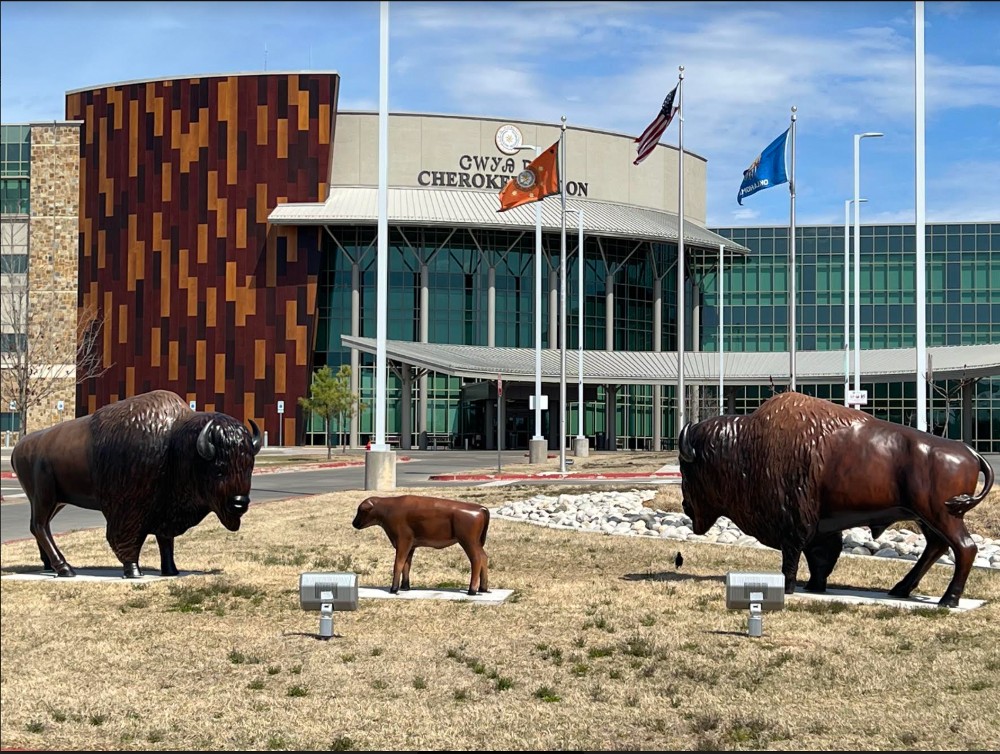Cherokee health embodies a unique perspective on well-being, rooted in a rich cultural heritage that emphasizes balance, harmony, and community. The Cherokee people have traditionally viewed health not merely as the absence of disease but as a state of complete physical, mental, emotional, and spiritual well-being. This article will delve into the principles of Cherokee health, exploring its historical context, cultural significance, and contemporary applications, all while adhering to the principles of E-E-A-T (Expertise, Authoritativeness, Trustworthiness).
In this comprehensive guide, we will explore various facets of Cherokee health, including traditional healing practices, the role of community, the importance of nature, and modern interpretations of these principles. By the end of this article, readers will gain a deeper understanding of how Cherokee health can inform contemporary wellness practices and promote a balanced lifestyle.
Table of Contents
- History of Cherokee Health Practices
- Traditional Healing Methods
- The Role of Community in Cherokee Health
- The Importance of Spirituality
- Connection to Nature and Its Benefits
- Modern Interpretations of Cherokee Health
- Challenges Facing Cherokee Health Practices Today
- Conclusion and Call to Action
History of Cherokee Health Practices
The history of Cherokee health practices is deeply intertwined with their cultural identity and worldview. Traditionally, the Cherokee believed that health was a gift from the Creator, and maintaining this gift required a balance between the physical, emotional, and spiritual realms. The Cherokee people utilized various medicinal herbs and plants, many of which are still recognized in modern herbalism.
Traditional Beliefs and Practices
Central to Cherokee health practices is the concept of harmony. The Cherokee worldview emphasizes the interconnectedness of all living beings and the importance of maintaining balance in one’s life. This belief system has led to the development of various healing practices, including:
- Use of herbal remedies
- Ritual ceremonies for healing
- Storytelling as a method of imparting knowledge
- Community gatherings to promote collective well-being
Traditional Healing Methods
Cherokee healing methods are diverse, incorporating both physical and spiritual elements. Traditional healers, often referred to as medicine men or women, play a pivotal role in the community's health.
Herbal Medicine
Herbal medicine is a crucial aspect of Cherokee health practices. Various plants are used for their medicinal properties, such as:
- Black cohosh for women's health
- Ginseng for energy and vitality
- Echinacea for immune support
These herbs are often prepared in teas, tinctures, or poultices, demonstrating the Cherokee's deep knowledge of local flora.
Rituals and Ceremonies
Ceremonies, such as the Sweat Lodge ceremony and the Talking Circle, are integral to Cherokee healing practices. These rituals foster a sense of community and provide spiritual and emotional support, facilitating healing on multiple levels.
The Role of Community in Cherokee Health
Community plays a vital role in Cherokee health practices. The interconnectedness of individuals within the tribe emphasizes collective responsibility for health and wellness.
Support Systems
Cherokee traditions emphasize the importance of family and community support. Elders serve as knowledge keepers, imparting wisdom and guidance to younger generations. Social gatherings and communal activities foster relationships and provide emotional support, which is essential for maintaining mental health.
The Importance of Spirituality
Spirituality is a cornerstone of Cherokee health. The Cherokee view health as a spiritual journey, where individuals seek harmony with themselves, others, and the natural world.
Spiritual Practices
Spiritual practices, such as prayer, meditation, and connection to the land, are fundamental to achieving a state of well-being. Engaging in these practices allows individuals to reflect on their lives and foster a sense of purpose.
Connection to Nature and Its Benefits
The Cherokee have a profound respect for nature, viewing it as a source of healing and inspiration. The connection to the land is essential for both physical and spiritual health.
Benefits of Nature
Spending time in nature has been shown to have numerous health benefits, including:
- Reducing stress and anxiety
- Improving mood and mental clarity
- Promoting physical activity
Engaging with nature aligns with the Cherokee philosophy of living in harmony with the environment.
Modern Interpretations of Cherokee Health
In contemporary society, there is a growing interest in Cherokee health practices, particularly in the fields of holistic health and wellness. Many individuals are seeking alternative approaches to health that prioritize the mind-body-spirit connection.
Integrating Traditional Practices
Modern health practitioners are increasingly recognizing the value of integrating traditional Cherokee practices into their approaches. This includes:
- Incorporating herbal remedies into wellness plans
- Utilizing mindfulness and meditation techniques
- Promoting community health initiatives inspired by Cherokee values
Challenges Facing Cherokee Health Practices Today
Despite the rich heritage of Cherokee health practices, modern challenges pose significant threats to their continuation. Issues such as cultural appropriation, loss of traditional knowledge, and socio-economic disparities impact the ability to maintain these practices.
Preserving Cultural Heritage
Efforts to preserve Cherokee health traditions are crucial. Initiatives aimed at educating younger generations about their cultural heritage are essential for ensuring that these practices endure. Community events, workshops, and storytelling sessions serve as methods for passing down knowledge.
Conclusion and Call to Action
Cherokee health, with its holistic approach, offers valuable insights into achieving overall well-being. By understanding and embracing these principles, individuals can enhance their health and foster a deeper connection with themselves and their communities. We encourage readers to explore these practices further, engage with local Native American communities, and consider integrating aspects of Cherokee health into their wellness routines.
Join the conversation! Leave a comment below sharing your thoughts on Cherokee health practices, or share this article with others who may benefit from this knowledge.
Sources
- National Center for Complementary and Integrative Health (NCCIH)
- Cherokee Nation Health Services
- American Indian Health and Family Services



